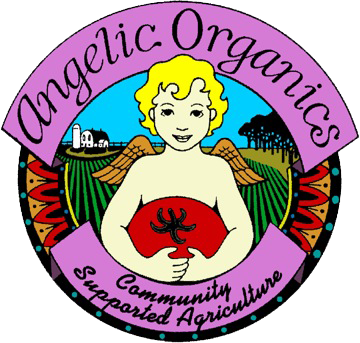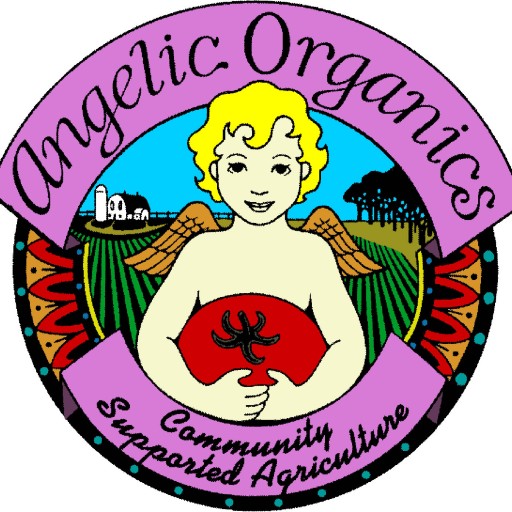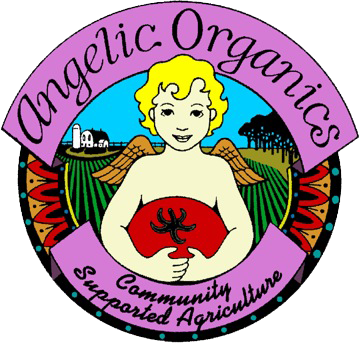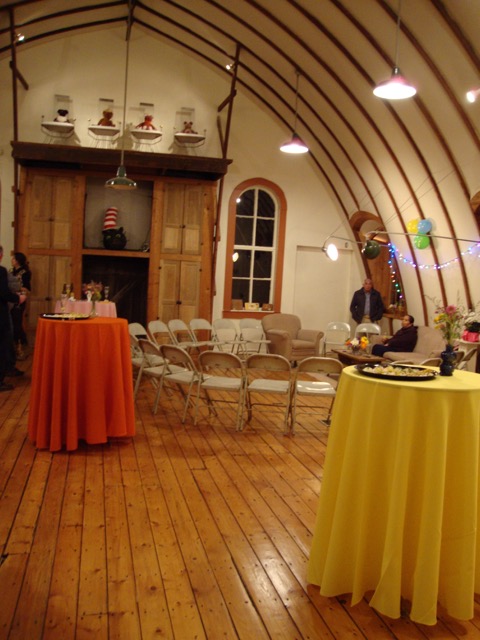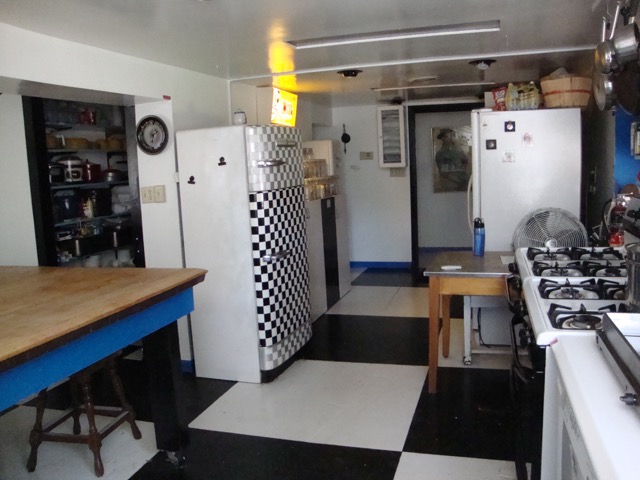Farmer John Writes: What We Wonder
Welcome to our Twenty-Fourth Harvest Week, the Fourth and Final Week of the Extended Season
Please Flatten Your Boxes Properly and Return Them, Especially if You have been Stockpiling Them
This is the last week of deliveries, so it would be great if you not only return all your empty vegetable boxes, but also transfer this week’s box contents to your own bag/box at your pickup site. Please be mindful, if you do this transfer, that you don’t create a mess for your site host to clean up. If you receive home delivery, place your empty, flattened box(es) in the location where your box is delivered. Please recycle your last box or keep it for next year if you’re going to be receiving home delivery again next year. If you receive fruit, you’ll need to re-cycle your fruit box on your own, as the farm does not re-use your fruit boxes.
This Week’s Special Box Treats: Popcorn & Garlic
Enjoy the popcorn. It might be dry enough when you receive it to pop right away, or you might need to husk the ear and let it dry on your counter for a while. As for the garlic, I imagine the aroma of our German White Porcelain Garlic wafting through our shareholders’ kitchens and dining areas on Thanksgiving Day. Swoon…
Sorry, No More Winter Squash (from Week 23 Farm News)
Several shareholders have written wondering if they will be getting more winter squash. I have mentioned numerous times in my Farm News column that we had a disappointing squash crop this year. If you missed last week’s column about the many considerations that go into winter squash production, check it out here. Reading it won’t make you into a farmer, but it will make you into a more informed shareholder—which is important.
Do You Sometimes Wonder What We Wonder?
I’m a planner. I sometimes come across guidance that suggests that I be in the moment; be in the here and now. My first thought is that this wisdom is obviously not being imparted by a farmer. My second thought is usually my here and now is the future. Pretty much everything we do on the farm is guiding our activity towards a moment that will arrive in the future. We guide our crops towards the future box. We guide our fertility towards a future season. We guide our machinery maintenance program towards future field performance and reliability, our building maintenance toward future functionality and beauty. Of course, to continually be in a picture, a vision, of the future, we need to be present to the moment in which we are currently active. Okay, it’s sort of a riddle, how all of this works. This musing does provide the lead, however, for a few ideas I have about the future of Angelic Organics.
I have mentioned many times in these columns that I love growing crops. It’s just the way it is; it’s a given. I could spend the rest of my life growing crops, learning more about how to grow crops, learning more about fertility, the weather, equipment, the soil, the varieties, and on and on. It would be an endlessly fascinating way to spend the rest of my life. This doesn’t mean that I should spend the rest of my life growing crops; it just means that for me, growing crops, is its own endlessly fascinating world. However, a farm is more than it’s crops; Angelic Organics Farm is more than the food it grows. But, how should this moreness be realized; how should this greater picture of what’s possible be nurtured and guided? I’ll note a few ideas here that run through my imagination now and then, not in any particular order.
Cultural Events
Angelic Organics has fabulous spaces for bringing people together. However, the farm is far away (1 1/2 to 2 hours) from the majority of our shareholders. Driving to the farm for an evening performance and returning late to Chicago can add a challenge to an otherwise lovely, inspiring evening. Of course, we could design our cultural activities more with local shareholders in mind.
A Cafe
I love the idea of a cafe on the farm, serving food prepared from our fields, offering a farm hangout where shareholders can be nourished, can meet fellow shareholders, play dominoes, read, surf the internet… I suppose we could name it Barnbucks. Of course, this would require a certified kitchen. We have a large, lovely kitchen in our big barn, but from what I’ve been told, it would require the equivalent of moving a mountain (of money) to get it certified. Here’s an example of a cafe, Hilltop Cafe on the Biodynamic Temple Wilton Farm in New Hampshire, the oldest CSA farm in the U.S. Temple Wilton Farm is also a full diet CSA farm (meaning they raise and market a huge variety of crops and animals there.)
A Store
A store on our farm would be great. We could team up with the Angelic Organics Learning Center and offer locally grown foods and crafts from local farms. Here’s a page about the store/cafe at Dottenfelderhof in Germany, a farm where I was warmly received when I presented The Real Dirt on Farmer John there. (The English on this page is translated by Google; it’s a bit awkward, but still conveys much about the extraordinary farm.)
Other Angelic Organics Farm Enterprises
As much as I love to grow vegetables and herbs, that’s a rather narrow slice of what a farm can really provide for people. There are CSA’s today, or clusters of farms that come together to form a broad CSA farm, a “full diet CSA,” which offer meat, milk, eggs, honey, grain (flour), fruit, vegetables and herbs. You can find several examples of such farms on the internet (such as Temple Wilton, mentioned above.) This breadth of food choices requires much coordination and cooperation amongst the producers. It’s a very compelling model, though I am daunted by the complexity of providing such an array of offerings. It would require a tremendous investment in our farm’s infrastructure and would require expanding our land base and would certainly require a team of very competent managers. I feel, however, that this model is worth striving for, that it is the ideal model of the future CSA farm. Here is an example of a very diverse Biodynamic farm, Hawthorne Valley Farm in Upstate New York: http://hawthornevalleyfarm.org
Education
A Waldorf school located at Angelic Organics would be fabulous, perhaps starting off the first few years with just a kindergarten. Waldorf education strives to be embedded in agricultural activities and ideally strives to be situated right on a farm. The more I learn about Waldorf education, the more I recognize it as a huge blessing to children, to humanity in general, and to the earth. I was blessed to grow up on our farm, and I feel that it is a cultural misfortune that so many children in our country today have no access to a farm. Check out the Hartsbrook Waldorf School and its Agricultural Arts Program located on a farm near Hadley, Massachusetts. More on their Agricultural Arts program here. Agricultural Arts—now there’s a lovely term. My wife and I were very inspired by our visit to the Hartsbrook Waldorf School a few years back.
Day Care
Day care at Angelic Organics could perhaps be somehow blended into the Waldorf model above. There are many parents, especially single moms, who would like to work at Angelic Organics but who are unable, due to parenting responsibilities. I would love to offer a day care program at the farm, so that parents would be able to work on our farm and know that their children were being wonderfully taken care of nearby.
A CSA Community Builder
As I’ve mentioned, I like growing things–the more the better. Therefore, we have a large CSA. Therefore, some of our shareholders don’t get the attention from our farm that I’d like to offer. I’d love to have someone on staff whose sole job it is to just make sure that our shareholders are taken care of in the best way possible. So many people are connected to one another through our farm, but most of these connections linger in the realm of possibility, not in the realm of actualization. I love the idea of bringing more of our shareholders together, engaging one another, learning from one another, doing things on the farm together, or in the urban neighborhood together.
Model Biodynamic Farm in Luxembourg
Tom Kass and Anja Staudenmayer farmed Biodynamically for years in the European Farm Village Model in Luxembourg. What’s the model? It’s a farmstead in the village, livestock grazing in the nearby pastures. Tom and Anja felt hemmed in by the close quarters in their village and built an idealized Biodynamic farm from scratch outside of their village. It was a huge, costly and very committed undertaking. Their new farm hosts many agricultural enterprises on a very human scale—a few pigs, a couple dozen milk cows, some rabbits, ducks, chickens, etc. It’s a working farm that also serves as an educational farm for hundreds, probably thousands, of school children each year. Tom and Anja hosted me warmly many times while I was on tour with the film in Europe. They were in the planning stage for their new farm while I was visiting them. (It cost over a quarter of a million dollars just to get plans drawn up and considered for their venture, with no guarantees that the plans would ever be approved.) And now they have their new farm. I yearn to return to see it in action. Sorry, their web page is in French and German, but you can see inspiring photos of their new farm here anyway.
Oh, Yeah…Then There’s Me
I’ll have to transfer some of my responsibilities for growing food to others in order to have time to start exploring these possibilities above. (Okay, I don’t plan to build a farm from scratch, like the Kass-Haff, but I do want to explore many of the other possibilities mentioned above.) If you read my Farm News columns closely, you know that I already work way too hard and long—typically 80 hours per week. (In case you’re going to advise me to delegate, I love to delegate and am always trying to delegate more. Part of why I find myself working so hard is because I often delegate more than I should and then end up picking up the pieces.) I’d like to have more time available to help create a more diversified farm and to help deepen our shareholders’ connection to our farm and to one another. What better way to bring people together than through a farm?
Shareholders Write (Nice that so many shareholders write us with joy and gratitude…)
By far the best broccoli of the season – so tender and sweet! (week 22)
~ Susan
Thank you for the hard work and planning that went into the contents of the boxes that we happily picked up each week. We found them filled with old favorites like juicy tomatoes and new ones like crisp kohlrabi. We learned that farming is art as well as science and formed a deeper appreciation for its complexities. We ate radish greens and kohlrabi in salads. We roasted beets and butternut squash. We were surprised to find the stalks of Brussels sprouts and garlic, and delighted with an unexpected treat, melons.
~ Sid and Madeline
That is a very old way of marking time – by the season and the harvest events. We have our first year of ‘Lettuce, Deer, and Huge Tomatoes’, and many other remarkable years with you, and looking forward to many more.
Blessings, Andrea
Hi Shelly,
I wanted to thank you, farmer John, and Angelic Organics growers for the wonderful vegetables we receive week after weeks. Attached is the picture of carrots we received which became our baby’s very first food last weekend. It was really exciting! 🙂
The veggies we received from the farm fed me and the babe throughout my pregnancy and breastfeeding, always giving us a sense of assurance knowning how safe and healthful they are. I cannot thank you enough for that! And now the baby is starting solids with the veggies from the farm. We feel truly fortunate! Thank you for all that you do, and wish you happy holidays!
Kind regards, Induk
Friday’s Box Contents
Please Note: this summary is written before you receive your box—be aware that some guesswork is involved. What we think we’ll put in your box might not actually end up in your box. As always, be sure to thoroughly wash all of your vegetables, and remember to sort through your baby greens to eliminate any discolored leaves or weeds.
Salad Greens – pea shoots, arugula
Fruiting Crops – popcorn
Cooking Greens – kale
Brassicas – broccoli side shoots, cabbage or Brussels sprouts
Alliums – garlic, onions
Root Crops – carrots, potatoes
We hope you’ll be with us again next year,
Farmer John and the Crew
Give the Gift of a Farm Experience from the Angelic Organics Learning Center
Our on-farm classes – from beekeeping to cheesemaking to family campouts – make unique and special holiday gifts. No matter the topic, you’ll enjoy observing our beautiful vegetable fields and meeting our friendly farm animals. Check out the full range of 2016 programs happening on your farm by visiting our website: http://www.learngrowconnect.org/events
